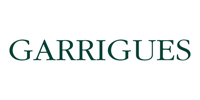
How the new Startups Law will boost talent and investment attraction in Spain
Catalan Economy
26 Jan 2023
The law fostering the ecosystem for emerging companies - better known as the Startups Law - was approved in December 2022, its aim being to attract talent and investment.
The law fostering the ecosystem for emerging companies - better known as the Startups Law - was approved in December 2022, its aim being to attract talent and investment by creating ecosystems favorable to the establishment of entrepreneurs and remote workers, to the creation and growth of innovative companies, and to attracting investors.
To this end, the main measures introduced by the law are centered on granting tax benefits to entrepreneurs, workers and investors, reducing administrative hurdles and making it easier to obtain visas, while also allowing for greater flexibility in business management.
One of the most important measures aimed at attracting talent has been the improvement of access to the special tax regime for workers assigned to Spanish territory, also known as the "inbound tax regime".
The changes to the requirements to be met to apply this regime are as follows:
- The number of years for which the person assigned cannot have been a Spanish tax resident before moving here have been reduced from 10 to 5 years.
- Persons eligible:
- Eligibility is open to those employees who move to Spanish territory to work remotely through the use, exclusively, of IT, remote and telecommunications technology and systems, taxpayers who engage in economic activities of an entrepreneurial nature, and, finally, highly qualified professionals who meet certain requirements.
- The maximum percentage of ownership interest in the company for directors wishing to apply the regime is eliminated, except for directors of asset-holding companies, for whom that maximum percentage remains at 25
- Family members of taxpayers (spouses - or parents of the taxpayer’s children where there is no marital tie - and children under 25 years of age, or older if they are disabled) will be eligible for the regime, provided that certain conditions are met.
The effects of applying the inbound tax regime have remained generally unchanged. Specifically, this regime allows the taxpayer to be taxed as a non-resident during the year in which he or she acquires tax residence in Spain and for the following five years, with two special features:
- Firstly, the tax base includes all salary income and income from business and professional activities, regardless of the country in which it was obtained.
- Secondly, the tax rate applicable to salary income and income from business and professional activities is 24% up to 600,000 euros and 47% over and above that amount.
However, as a new feature, salary income in kind which is exempt under Personal Income Tax legislation will also be exempt for inbound expatriates, as for any non-resident who pays Non-Resident Income Tax.
Author:
Mónica Sevilla, partner in the Tax Department at Garrigues
Article in collaboration with:
Related news and success stories.
-
05 Apr 2024
See more Catalonia launches a new Master's in Semiconductors and Microelectronic DesignCatalonia launches a new Master's in Semiconductors and Microelectronic Design
-
05 Apr 2024
See more Barcelona boosts business connectivity with new flights to MiamiBarcelona boosts business connectivity with new flights to Miami
-
27 Mar 2024
See more Catalonia presents the success of its economic cluster policy at Harvard UniversityCatalonia presents the success of its economic cluster policy at Harvard University
-
26 Mar 2024
See more The children's product sector in Catalonia has a turnover of over €4.4 billionThe children's product sector in Catalonia has a turnover of over €4.4 billion


